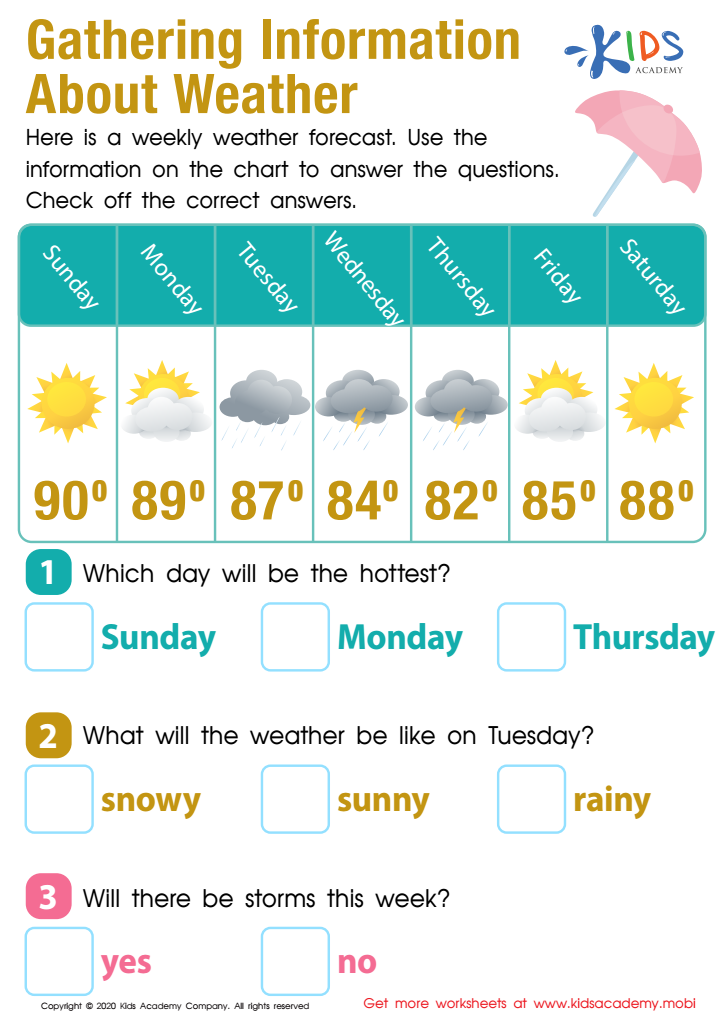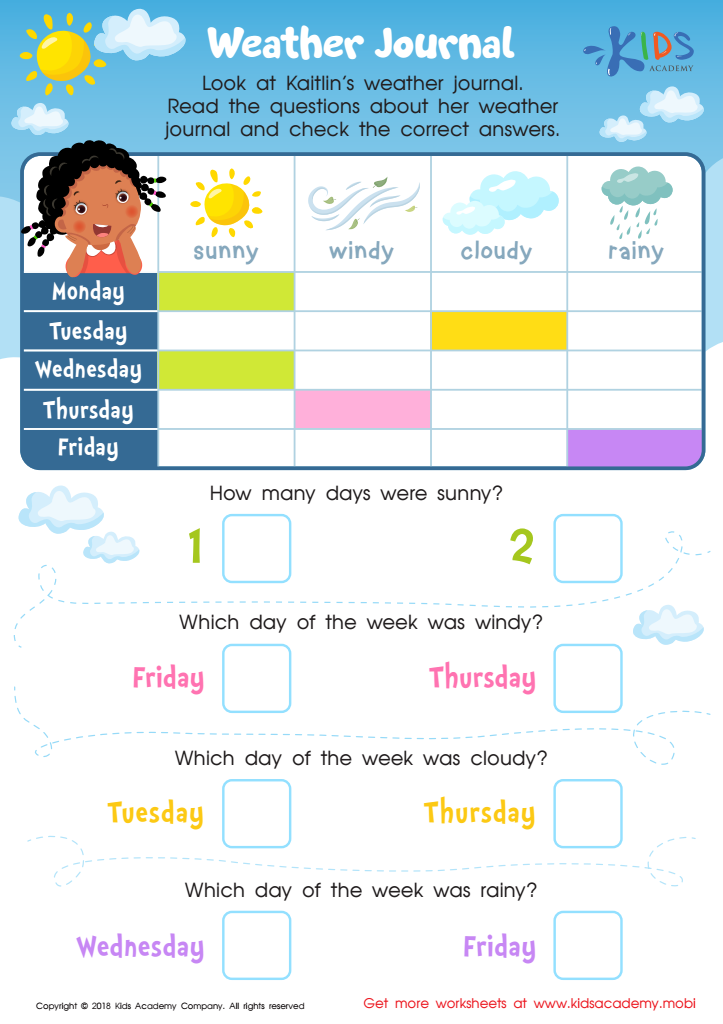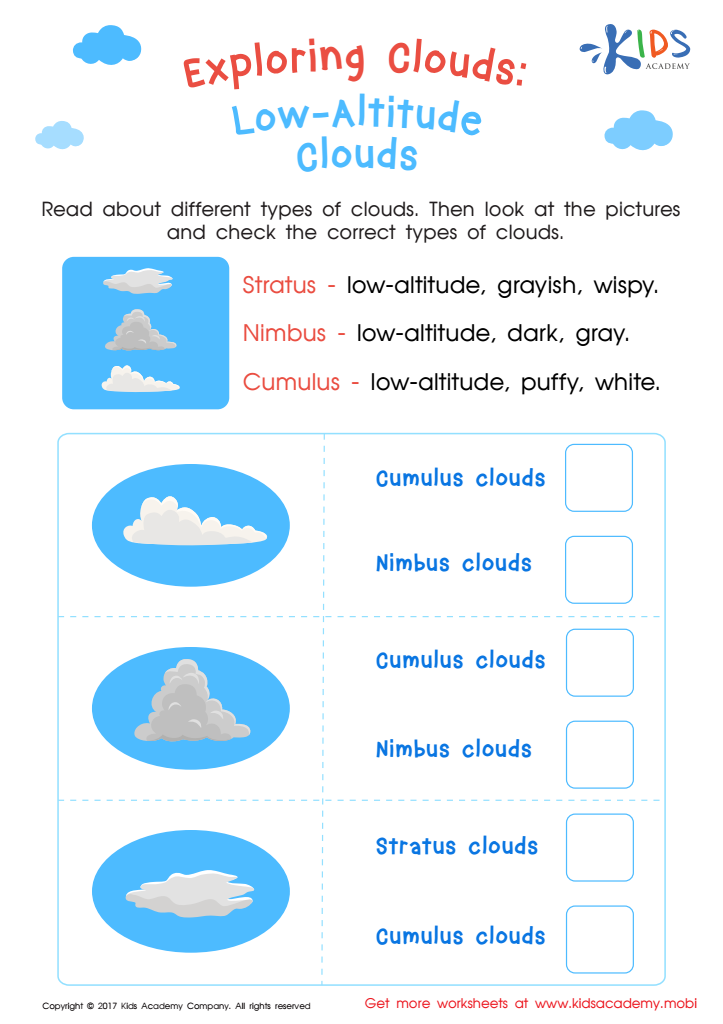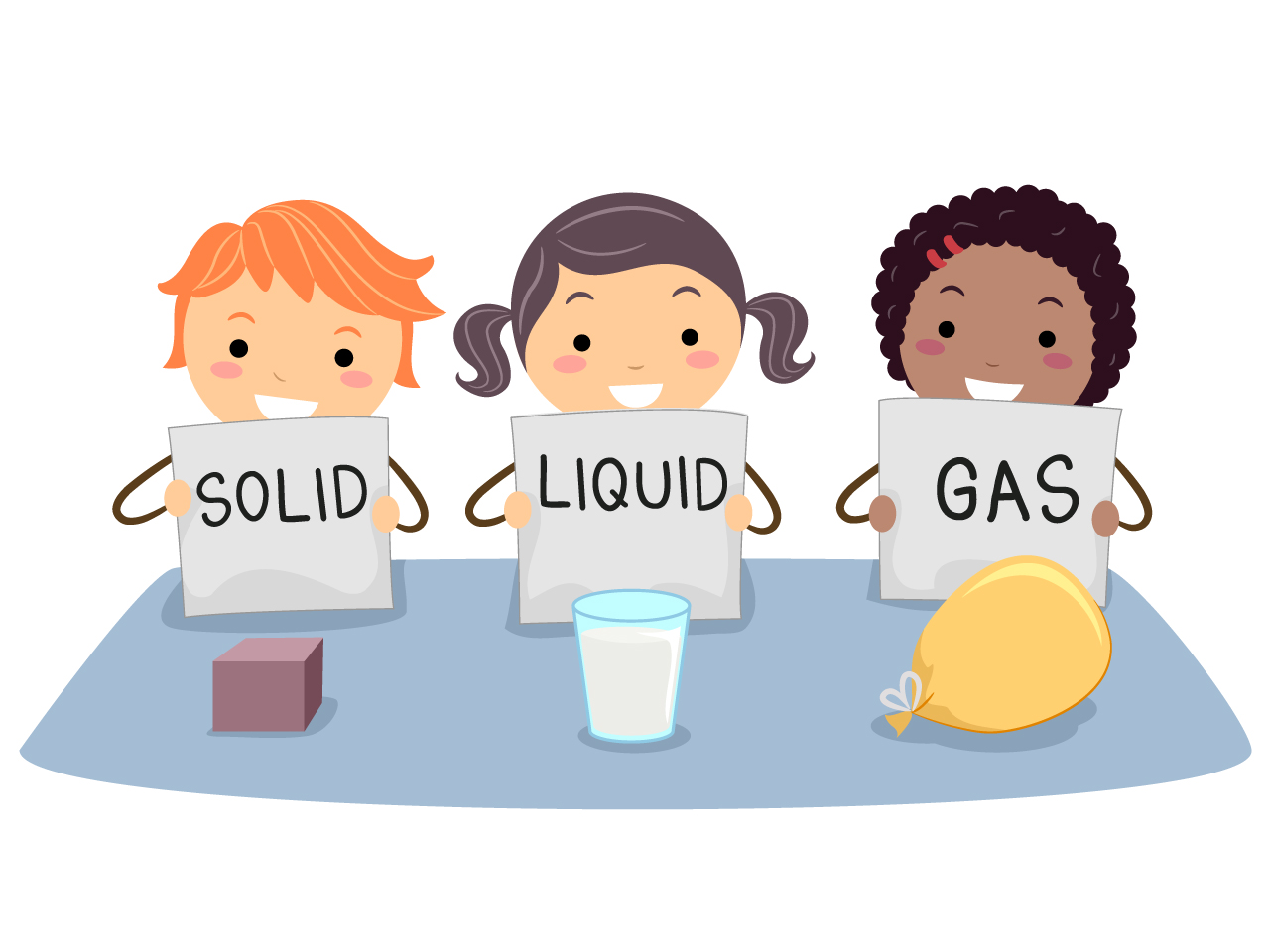Understanding weather Normal Science Worksheets for 6-Year-Olds
3 filtered results
-
From - To
Introduce your 6-year-old to the wonders of meteorology with our "Understanding Weather" science worksheets. Designed by expert educators, these engaging printables simplify complex weather concepts, making learning fun and approachable. Children explore various weather types, learn to read forecasts, and understand the impact of weather on our daily lives. Interactive activities, colorful graphics, and age-appropriate exercises help solidify key concepts, enhancing critical thinking and observational skills. Perfect for home or classroom use, these weather worksheets promise an interactive and educational journey into the world of weather, inspiring young minds to explore and understand the science around them.


Gathering Information About the Weather Worksheet


Weather Journal Worksheet


Exploring Clouds: Low Altitude Clouds Printable
Parents and teachers should care about helping 6-year-olds understand weather because it lays the foundation for scientific literacy and builds curiosity about the world. At this age, children are naturally curious and eager to explore their environment. Introducing basic weather concepts in a clear and engaging way nurtures their interest in science and stimulates cognitive development. Understanding weather patterns like rain, sunlight, wind, and snow helps children relate to everyday experiences, making abstract concepts more tangible and relatable for them.
Moreover, learning about the weather teaches important life skills such as observation, hypothesis-making, and interpreting data. These foundational skills are not only crucial for science learning but also enhance critical thinking abilities useful in various subjects. Understanding weather also instills a sense of responsibility and awareness about the environment, fostering early eco-consciousness.
Parents and teachers play pivotal roles in shaping children's attitudes toward learning. By fostering an understanding of weather, they help children comprehend how the world works, unlocking a sense of wonder and motivation to learn more. Interactive activities like weather charts or small experiments make learning exciting, which can set a positive trajectory for lifelong learning and curiosity. This early engagement can inspire future interest in broader scientific fields, making education a more enriching experience.

 Assign to My Students
Assign to My Students















